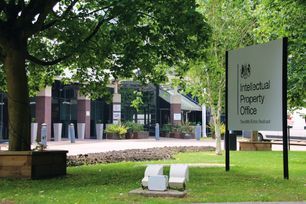Mind the gap
Martin Chinnery provides guidance for those hoping to use the Madrid Protocol in Africa.

With an increasing number of African countries joining the Madrid Protocol over the past few years, the International Registration (IR) system has started looking like a more attractive proposition for those who wish to protect their trade marks in Africa.
African countries in which IRs are valid and enforceable include: Algeria, Botswana, Egypt, Gambia, Ghana, Kenya, Liberia, Madagascar, Malawi, Morocco, Mozambique, Namibia, Rwanda, Sao Tome e Principe, Sudan, Tunisia and Zimbabwe.
However, many trade mark owners have come unstuck when relying on IRs to pursue counterfeiters and infringers in this way. The central problem is that a number of countries are signatories to the Madrid Protocol but have not amended their national laws to allow designations of IRs received from the WIPO to be processed, registered and recognised.
Eswatini
Eswatini, formerly known as Swaziland, signed the Madrid Protocol on 14th September 1998, but its Trade Mark Law and Regulations entered into force in 1994, and make no reference to the Madrid Protocol. In practice, while the Trade Mark Office processes some international designations received from the WIPO, their validity is questionable due to the lack of local legislation.
Lesotho
Lesotho signed the Madrid Protocol on 12th November 1998, but its Trade Mark Law is dated 1989 and was last amended in 1997. Designations of IRs received from the WIPO are not processed by the Registry.
OAPI
The African Intellectual Property Organization (OAPI) signed the Madrid Protocol on 5th December 2014 and has been processing designations of IRs received from the WIPO ever since. However, the provisions of a new IP law relating to trade marks, which will give recognition to IRs, are only expected to enter into force later this year. Until the new law comes into effect, the enforceability of IRs in OAPI member states is in doubt.
Sierra Leone
Sierra Leone signed the Madrid Protocol on 28th September 1999. Its current law dates back to 2014, but as its Regulations have yet to be introduced, the new law has yet to officially enter into force. Notwithstanding this, the Trade Marks Registry is already applying the terms of the new law, which introduces the Nice Classification for the first time, as well as 10-year renewal terms, but makes no mention of the Madrid Protocol.
Zambia
Zambia signed the Madrid Protocol on 15th August 2001, but its law dates back to the 1950s and makes no mention of the Madrid Protocol. Further, it does not allow the registration of service marks. There is case law in Zambia which suggests that IRs are not valid due to the failure to incorporate the terms of the Madrid Protocol into the national law.
Notable omissions
It is worth noting that while more and more countries are joining the Madrid Protocol, plenty of African countries are still not signatories, including several of the continent’s largest economies. Among these are: Angola, Burundi, Cape Verde, the Democratic Republic of the Congo, Djibouti, Eritrea, Ethiopia, Libya, Mauritius, Nigeria, the Seychelles, Somalia, Somaliland, South Africa, South Sudan, St Helena, Tanzania and Uganda.
Martin Chinnery is a Chartered Trade Mark Attorney at Lysaght
Read the magazine






